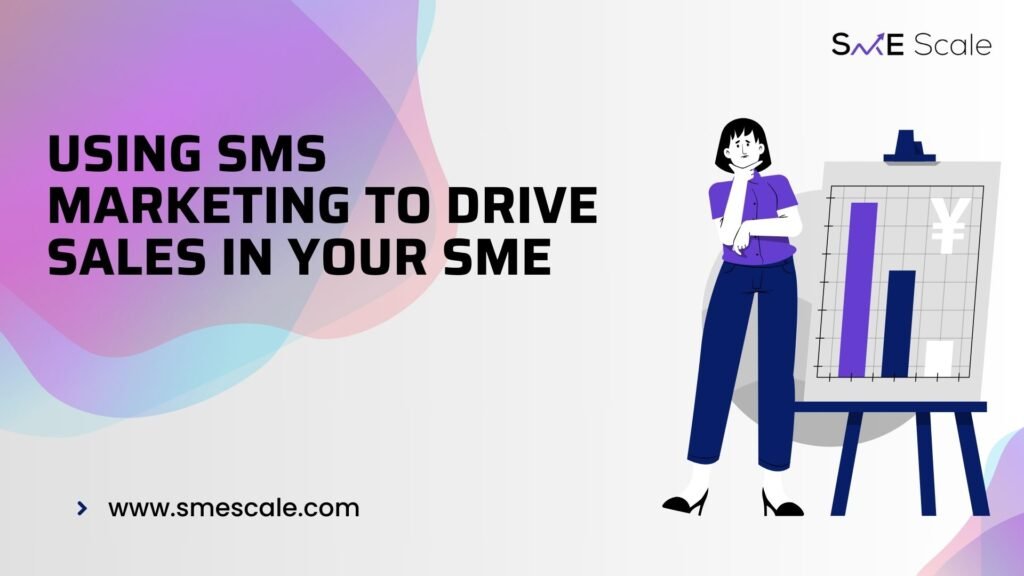
In today’s fast-paced digital landscape, SMEs must leverage multiple channels to engage their target audience effectively. One often overlooked yet powerful tool in a small business’s marketing toolkit is SMS marketing. With open rates as high as 98%, SMS is a direct and immediate channel that can yield significant results when done right. In this blog, we’ll explore how SMEs can use SMS marketing to drive sales, examine a real-life case study, and dive into the psychology behind why SMS marketing works so well.
The Power of SMS Marketing for SMEs
SMS marketing stands out for its simplicity and effectiveness. Unlike email marketing, where open rates can struggle to reach 20%, SMS messages are opened almost instantly. When used strategically, this channel can help SMEs increase customer engagement, drive traffic to both online and physical stores, and ultimately boost sales.
Why SMS Works: The Psychology of Instant Gratification
SMS taps into the psychology of instant gratification. Most people have their phones within arm’s reach throughout the day, and when they hear that ping of a new message, it triggers a sense of urgency. This urgency translates into action—whether it’s opening the message immediately or making a purchase based on the content. The brevity of SMS marketing also makes it more digestible, giving users a clear, concise message that leads them to the next step in the sales funnel.
Case Study: A Local Boutique Boosts Sales by 25% with SMS Marketing
Let’s look at how a small fashion boutique used SMS marketing to significantly increase sales. This boutique had a loyal customer base but was struggling to maintain engagement through traditional marketing channels like email and social media. They needed a direct and efficient way to reach their customers with exclusive offers.
Step 1: Building a Subscriber List
The first step was to encourage customers to sign up for SMS alerts. The boutique placed a simple sign-up form on their website and encouraged in-store shoppers to join their SMS list in exchange for a 10% discount on their next purchase. Within a month, they had a subscriber base of 1,500 loyal customers.
Step 2: Crafting Personalized and Time-Sensitive Messages
Once the subscriber list was built, the boutique sent out exclusive promotions via SMS, timed around their busiest shopping hours. For example, they offered a “flash sale” where customers could get 20% off in-store purchases for the next 48 hours. The concise and time-sensitive nature of the messages played into customers’ fear of missing out (FOMO), prompting immediate visits to the store.
Step 3: Automating SMS Campaigns for Special Events
For special events like Black Friday or seasonal sales, the boutique automated its SMS marketing campaigns. These messages were personalized, addressing the customer by their first name and referencing past purchases. The boutique used customer data to segment their audience and send tailored promotions, resulting in a more personalized experience that resonated with each customer segment.
The Results
The boutique saw an immediate increase in foot traffic and online orders after sending out their SMS campaigns. Over the course of three months, SMS marketing drove a 25% increase in sales compared to the previous quarter. Customers appreciated the direct communication and often mentioned how convenient it was to receive promotions directly on their phones.
How SMEs Can Replicate This Success
Build a Solid Subscriber List: Offer incentives like discounts or early access to sales in exchange for signing up for SMS alerts.
Send Targeted, Time-Sensitive Messages: Use data from your CRM or POS system to send personalized offers that appeal to your customers’ interests and past behaviors.
Automate Where Possible: Automation tools can schedule messages based on important dates, such as customer anniversaries or special events like Black Friday.
Keep It Short and Sweet: One of the main strengths of SMS marketing is its brevity. Focus on clear, actionable messages that lead directly to a sale or engagement.
The Psychology of SMS Marketing: Why It Drives Action
Beyond just instant gratification, SMS marketing taps into several key psychological drivers:
FOMO (Fear of Missing Out): Time-sensitive offers create a sense of urgency, compelling recipients to act quickly.
Personalization: Addressing the recipient by name or sending offers based on past purchases builds a sense of rapport and relevance.
Trust: SMS feels more personal and less invasive compared to other marketing channels, especially when the customer has opted in.
Conclusion: SMS as a Sales Booster for SMEs
For SMEs looking to drive immediate sales and engage their customer base, SMS marketing is a powerful tool that shouldn’t be overlooked. By focusing on building a strong subscriber list, crafting personalized messages, and using psychology to prompt action, businesses can see significant growth through this direct and immediate channel.
Incorporating SMS into your multi-channel marketing strategy is not just about sending messages but about creating meaningful connections with your customers. The boutique’s success story highlights the immense potential of SMS marketing when combined with the right strategies, data, and timing.

